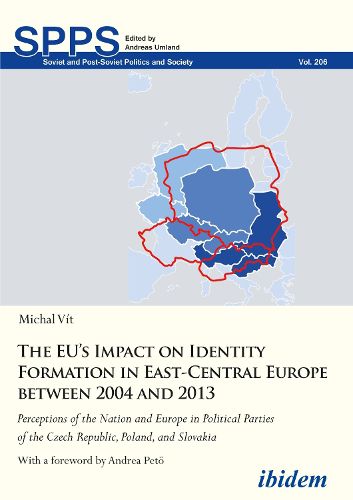Readings Newsletter
Become a Readings Member to make your shopping experience even easier.
Sign in or sign up for free!
You’re not far away from qualifying for FREE standard shipping within Australia
You’ve qualified for FREE standard shipping within Australia
The cart is loading…






The Czech Republic, Poland, and Slovakia share similar experiences in the past, and a swift postcommunist integration into the originally West European communities of democratic countries, as their return to Europe. Michal Vit explores how these three countries have been influenced by the new all-European environment for their independent national development. He introduces a research framework for the analysis of national identity focusing on parliamentary political parties represented at both the national and European levels. How did these parties cope with possible misfits of their understanding of national identity? How did these tensions interplay with their new transnational European political environment? Vit’s study finds that, after the accession of the Czech Republic, Poland, and Slovakia to the EU, there began a gradual decrease of identification of political parties with the European space. The extent of this estrangement was determined by these parties’ belonging or non-belonging to European political party families. The book provides a better understanding of current political developments in East-Central Europe and their consequences for these countries’ national and European politics.
$9.00 standard shipping within Australia
FREE standard shipping within Australia for orders over $100.00
Express & International shipping calculated at checkout
The Czech Republic, Poland, and Slovakia share similar experiences in the past, and a swift postcommunist integration into the originally West European communities of democratic countries, as their return to Europe. Michal Vit explores how these three countries have been influenced by the new all-European environment for their independent national development. He introduces a research framework for the analysis of national identity focusing on parliamentary political parties represented at both the national and European levels. How did these parties cope with possible misfits of their understanding of national identity? How did these tensions interplay with their new transnational European political environment? Vit’s study finds that, after the accession of the Czech Republic, Poland, and Slovakia to the EU, there began a gradual decrease of identification of political parties with the European space. The extent of this estrangement was determined by these parties’ belonging or non-belonging to European political party families. The book provides a better understanding of current political developments in East-Central Europe and their consequences for these countries’ national and European politics.